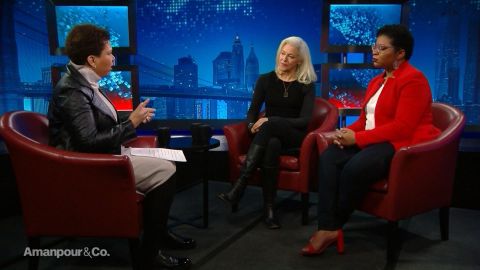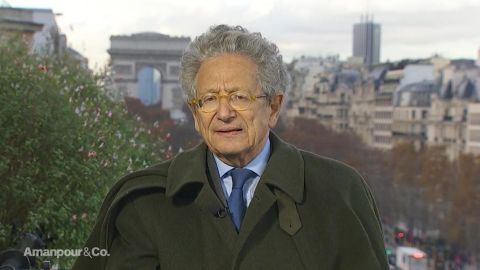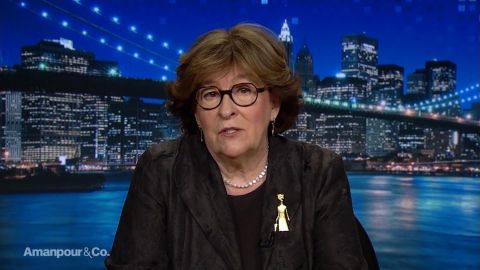Read Transcript EXPAND
LOUISE ARBOUR: Well, I think the first thing that I think is important to keep in mind is the whole world now is preoccupied with global issues, you know, climate change, technology, human mobility, you know, to have whatever it is, 5, 10, 15,000 people trying to enter a country of 330 million, not exactly a crisis. We’re looking at human mobility all over the world in all kinds of different circumstances. A lot of confusion between refugees and migrants. As you know, refugees are covered by the 1951 refugee convention, they are entitled to have their status determined when they make an asylum claim. And if they are successfully assessed as being refugees, they’re entitled to international protection. And in contrast, there’s about 250 million migrants, that is people who live, who have moved and lived and settled in a country other than their country of birth. This is now what we need to manage better, this whole factor of human mobility.
CHRISTIANE AMANPOUR: So, do you class the Central Americans fleeing from their countries as migrants or refugees?
ARBOUR: Well, actually, most of them will make an asylum claim because by the time they arrive at the border, there’s no other legal channel for them to enter. Some of them probably actually qualify for refugee protection, others may see their claim dismissed, in which case, they either will be given an opportunity to stay in the country through some other status or they will be asked to return home. So, you cannot determine their status until the process for determination has been put in place.
AMANPOUR: So, let’s now talk about how you manage this era of human mobility and migration. Let’s put aside for a moment the refugees who are fleeing war, pestilence, poverty and all those kinds of things and who may or may not have their asylum granted. You the U.N. have this global migration pact, that compact that you’re trying to implement. But it seems that so many relevant countries are dropping out, pulling out, the U.S. doesn’t want anything do with it, European countries, quite a few of them, don’t want anything to do with it. So, what is the hope of getting some kind of Global Compact? As you said, migration depends not on just the country but on its neighbors as well.
ARBOUR: Well, that’s right. It’s a collective effort that has taken place actually very much under the impetus of European countries, who after 2015 were starting to feel that they were losing control of their borders.
About This Episode EXPAND
Christiane Amanpour speaks with Dominique Moisi, Special Adviser, Institut Montaigne; and Louise Arbour, U.N. Special Representative for International Migration. Michel Martin speaks with Sharon Cooper, Sandra Bland’s sister, and Kate Davis, co-director of the film “Say Her Name.”
LEARN MORE


